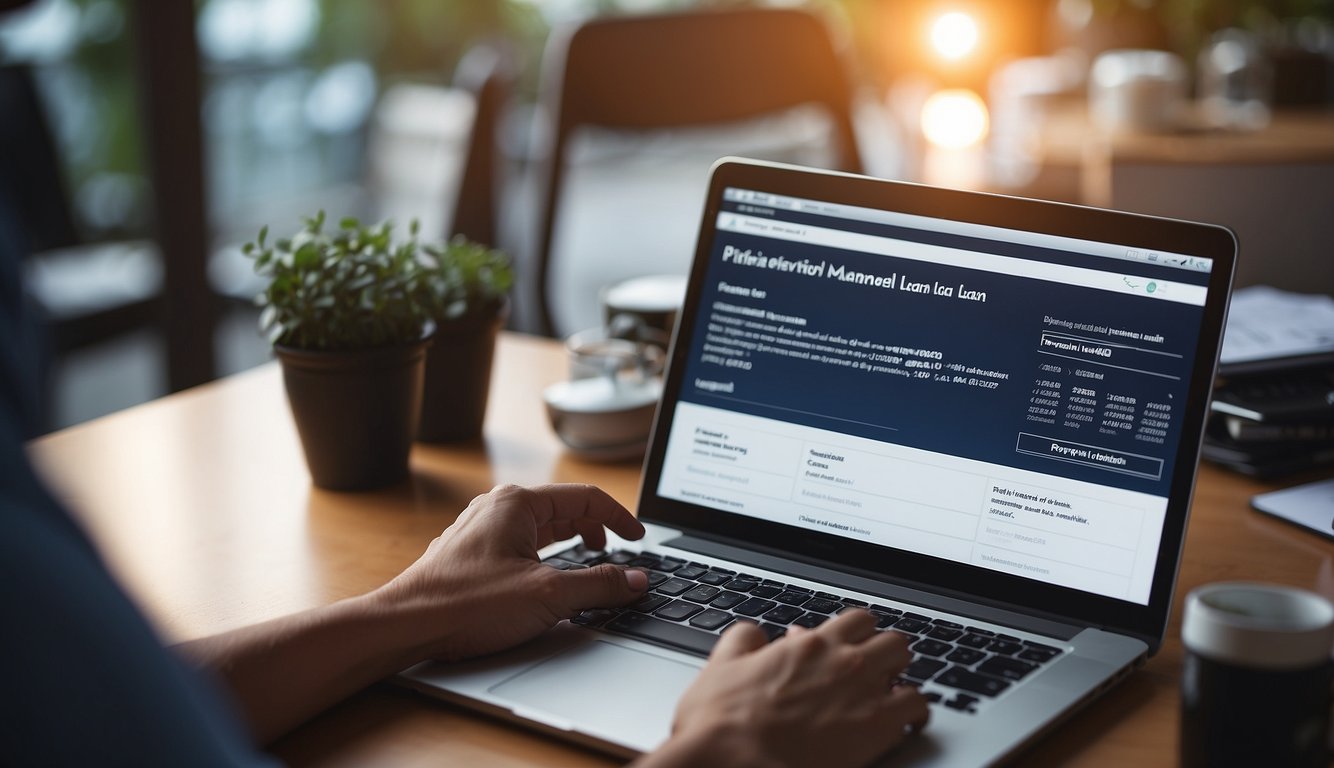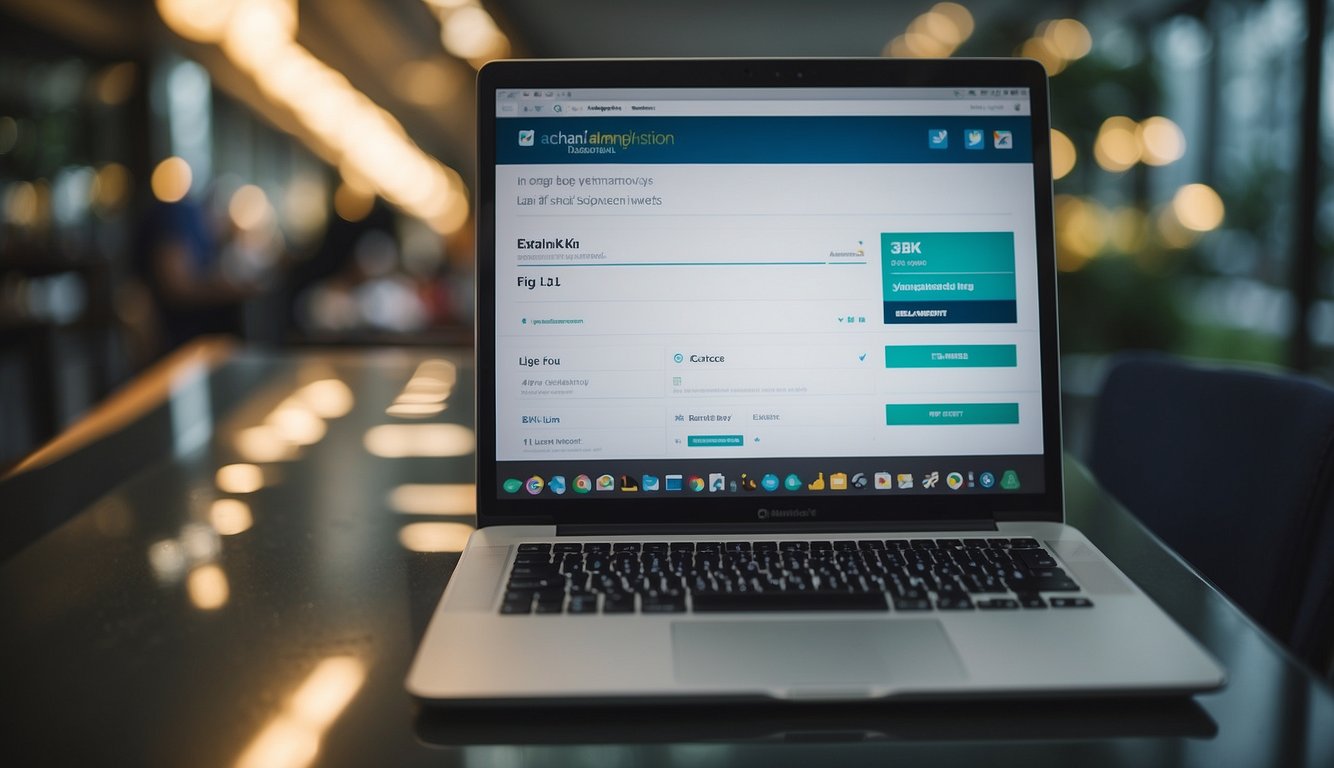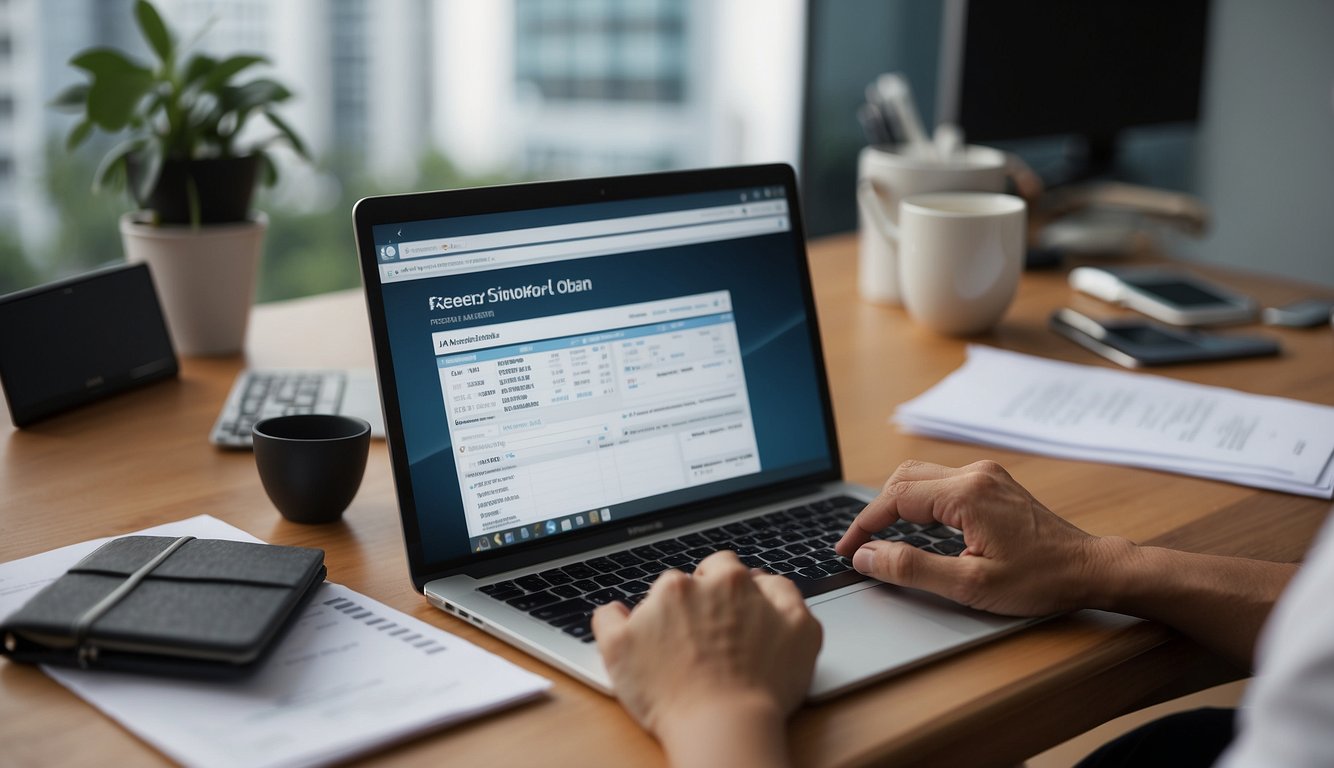Are you struggling to make ends meet on a low income in Singapore? Do you need financial assistance to cover unexpected expenses, consolidate debt, or make a major purchase? If so, you might be wondering if a personal loan is a possible option for you.

Personal loans are a type of unsecured loan that can be used for a variety of purposes. They are typically offered by banks, credit unions, and other financial institutions in Singapore. However, the eligibility criteria, interest rates, fees, and repayment terms can vary widely depending on the lender and your creditworthiness.
Before you apply for a personal loan as a low-income earner in Singapore, it’s important to understand the pros and cons, as well as the application process and special considerations. Keep reading to learn more about personal loans for low-income earners in Singapore and whether they are a possible option for you.
Key Takeaways
- Personal loans can be a possible option for low-income earners in Singapore who need financial assistance, but it’s important to understand the eligibility criteria, interest rates, fees, and repayment terms.
- To qualify for a personal loan in Singapore, you typically need to be a Singaporean or Permanent Resident earning at least S$20,000 per year, or a foreigner earning at least S$40,000 per year.
- If you are a low-income earner in Singapore, you may also want to consider alternative financing options, financial planning and management, and emergency loans for urgent needs.
Understanding Personal Loans in Singapore

If you are a low-income earner in Singapore, you might find yourself in need of some extra cash to cover unexpected expenses or to improve your financial situation. Personal loans can be a viable option for you to consider. Here’s what you need to know about personal loans in Singapore.
Types of Personal Loans
There are different types of personal loans available in Singapore, including:
- Unsecured personal loans: These loans do not require collateral and are typically offered by banks and financial institutions. They are suitable for those who do not have assets to pledge as collateral.
- Secured personal loans: These loans are backed by collateral, such as a car or house. They are typically offered by banks and licensed money lenders.
- Payday loans: These loans are short-term loans that are designed to be repaid on your next payday. They are offered by licensed money lenders and are suitable for those who need cash urgently.
Loan Providers and Options
When it comes to personal loans, you have several options to choose from. Banks are a popular choice for personal loans as they offer competitive interest rates and flexible repayment terms. Some of the major banks in Singapore that offer personal loans include DBS, OCBC, UOB, and Standard Chartered.
Licensed money lenders are another option to consider, especially if you have a low credit score or do not meet the income requirements of banks. However, it is important to note that licensed money lenders charge higher interest rates compared to banks.
Financial institutions such as MoneySmart and SingSaver can also be useful resources for comparing personal loan options in Singapore. They allow you to compare interest rates, fees, and other terms and conditions to find the best loan option for your needs.
In conclusion, personal loans can be a viable option for low-income earners in Singapore who need extra cash. However, it is important to do your research and compare loan options to find the best deal for your financial situation.
Eligibility Criteria for Low Income Earners

If you are a low-income earner in Singapore, you may be wondering if you are eligible for a personal loan. The good news is that there are options available to you, but you will need to meet certain eligibility criteria.
Minimum Income Requirements
One of the most important eligibility criteria for a personal loan is your income. Most lenders will require you to have a minimum annual income of at least S$20,000. However, some lenders may require a higher income, so it’s important to check the requirements of each lender before you apply.
Age and Employment Considerations
In addition to your income, lenders will also consider your age and employment status when assessing your eligibility for a personal loan. To be eligible, you must be at least 21 years old and either a Singapore citizen, Permanent Resident, or a foreigner with an Employment Pass.
If you are employed, you will need to provide proof of income, such as your latest payslip, CPF contribution statement, or employment contract. If you are self-employed, you will need to provide your latest income tax statement or financial statements.
If you are unemployed or have a low income, you may still be eligible for a personal loan, but you will need to provide additional documents to prove your ability to repay the loan. These may include your NRIC or passport, SingPass, and proof of income from other sources such as rental income or government assistance.
Overall, if you meet the eligibility criteria for a personal loan, it can be a useful financial tool for low-income earners in Singapore. However, it’s important to borrow responsibly and only take out a loan if you can afford to repay it.
Loan Application Process

If you are a low-income earner in Singapore and you need a personal loan, the application process can be straightforward. Here are the steps to apply:
Steps to Apply
- Determine the loan amount you need and the repayment period you can afford.
- Research lenders that offer personal loans for low-income earners in Singapore. You can use comparison websites like Lendela to identify the best loan options for your budget.
- Fill out the loan application form online or in-person. You will need to provide your personal information, employment details, and loan amount.
- Submit the required documentation to the lender.
Documentation Needed
To apply for a personal loan, you will need to provide the following documentation:
- Employment letter or proof of income, such as payslips or income tax statements
- Bank statements for the past three to six months
- Proof of residence, such as utility bills or a tenancy agreement
- Identity card or passport
- Alimony or child support documents (if applicable)
The lender may also request additional documentation depending on your individual circumstances. Make sure you have all the necessary documentation ready before submitting your loan application.
Overall, applying for a personal loan in Singapore as a low-income earner is possible. By following the steps above and providing the required documentation, you can increase your chances of getting approved for a loan that meets your financial needs.
Interest Rates and Fees

If you are considering a personal loan for low-income earners in Singapore, it is important to understand the interest rates and fees associated with the loan. Here are some things to keep in mind:
Understanding Interest Rates
Interest rates are the amount of money that you will be charged for borrowing the loan. The interest rate is usually expressed as a percentage of the loan amount. The interest rate can vary depending on the lender and the type of loan that you are applying for.
One thing to keep in mind is the Effective Interest Rate (EIR). The EIR takes into account the processing fee and other charges associated with the loan. This gives you a more accurate picture of the total cost of borrowing the loan.
Additional Charges to Consider
In addition to the interest rate, there are other charges that you should consider when applying for a personal loan. These charges can include a processing fee, early repayment fee, and late payment fee.
For example, the POSB Personal Loan has a processing fee of 1% of the loan amount. The OCBC ExtraCash Loan has a processing fee of 2% of the loan amount. The Standard Chartered CashOne Personal Loan has a processing fee of $199.
It is important to read the terms and conditions carefully to understand all of the fees and charges associated with the loan. This will help you to avoid any surprises later on.
When comparing loan offers, it is important to look at the interest rate, EIR, and all of the fees and charges associated with the loan. This will help you to find the loan that is the most affordable for your needs.
Some of the best personal loans for low-income earners in Singapore include the POSB Personal Loan, the OCBC ExtraCash Loan, the Standard Chartered CashOne Personal Loan, and the CIMB Personal Loan.
Repayment Terms and Tenures

If you’re considering taking out a personal loan for low income earners in Singapore, it’s important to understand the repayment terms and tenures available. Here are some key things to keep in mind:
Calculating Your Repayments
Before you take out a personal loan, it’s important to calculate your repayment schedule. This will help you determine how much you can afford to borrow and how long it will take you to repay the loan. You can use an online loan calculator to help you determine your monthly repayments based on the loan amount, interest rate, and loan tenure.
Loan Tenure Options
Loan tenure refers to the duration of time you have to repay the loan. Personal loans for low income earners in Singapore typically come with loan tenures ranging from one to five years. The longer the loan tenure, the lower your monthly repayments will be, but the higher the total interest paid over the life of the loan.
When choosing a loan tenure, it’s important to consider your financial situation and your ability to repay the loan. If you can afford higher monthly repayments, you may want to choose a shorter loan tenure to save on interest charges. On the other hand, if you need lower monthly repayments to manage your cash flow, a longer loan tenure may be a better option.
The loan amount and principal amount you can borrow will depend on your income and credit score. It’s important to only borrow what you can afford to repay, as defaulting on a loan can have serious consequences for your credit score and financial future.
In summary, personal loans for low income earners in Singapore can be a useful option for those who need to borrow money for unexpected expenses or emergencies. However, it’s important to understand the repayment terms and tenures available, and to only borrow what you can afford to repay.
Special Considerations for Foreigners

If you are a foreigner in Singapore and have a low income, you may face some additional challenges when applying for a personal loan. However, there are still options available to you.
Loan Options for Expatriates
As a foreigner, you may not be eligible for all the same loan options as Singapore citizens or permanent residents. However, there are still several banks and licensed moneylenders that offer personal loans to expatriates.
Some of the loan providers that offer personal loans to foreigners include Standard Chartered, POSB, OCBC, DBS, HSBC, and Citibank. You can compare the interest rates and other terms of these loans to find the best option for your needs.
Required Documents for Foreign Applicants
When applying for a personal loan as a foreigner, you will need to provide some additional documentation to prove your eligibility. Some of the documents you may need to provide include:
- Employment pass
- Singapore address proof like utility bill
- Credit report from CBS
- Income proofs like payslips and bank statements
- Passport or NRIC
Documentation also shows lenders you plan to remain in Singapore during the loan period.
It is important to note that interest rates are usually higher for foreigners. Therefore, it is important to compare different loan options and choose the one with the lowest interest rate and most favourable terms.
In conclusion, while it may be more challenging for foreigners with low income to obtain a personal loan in Singapore, there are still options available. By providing the necessary documentation and comparing different loan options, you can find the best loan for your needs.
Alternative Financing Options

Non-Bank Lenders
If you find it challenging to secure a personal loan from traditional banks due to your financial circumstances, non-bank lenders can be a viable alternative. These lenders often have more flexible lending criteria and may consider your application based on alternative documents, such as your Notice of Assessment (NOA) or other proof of income. They can provide you with the opportunity to borrow money even if you have a lower income, allowing you to meet your financial needs.
Community Assistance Programmes
In addition to non-bank lenders, consider exploring community assistance programmes designed to support individuals with lower financial capabilities. These programmes may offer financial assistance, advice, and resources to help you manage your financial situation. Some may also provide access to co-signers or guarantors, which can improve your chances of securing a loan. These initiatives aim to empower you to navigate your financial circumstances more effectively and access the support you need.
Financial Planning and Management

As a low-income earner, taking out a personal loan can be a viable option to meet your financial needs. However, it is important to plan and manage your finances properly to avoid over-indebtedness. Here are some tips to help you with financial planning and management.
Budgeting for Loan Repayment
Before taking out a personal loan, it is important to create a budget plan to ensure that you can afford the loan repayment. You should take into account your monthly income, expenses, and debts. This will help you determine how much you can afford to borrow and how much you can afford to repay each month.
To create a budget plan, you can use a budgeting app or a spreadsheet. List all of your income sources and expenses, including your loan repayment, and categorise them into fixed and variable expenses. Fixed expenses are those that do not change every month, such as rent, while variable expenses are those that can change every month, such as groceries.
Once you have created your budget plan, you can adjust your expenses to ensure that you can afford your loan repayment. You may need to cut back on some expenses or find ways to increase your income.
Avoiding Over-Indebtedness
Taking out a personal loan can be a helpful tool to meet your financial needs, but it can also lead to over-indebtedness if not managed properly. Over-indebtedness can negatively affect your quality of life and your credit score.
To avoid over-indebtedness, you should only borrow what you can afford to repay. You should also avoid taking out multiple loans at the same time, as this can increase your total debt servicing ratio and affect your credit rating.
It is also important to maintain a good credit history by making your loan repayments on time. Late or missed payments can negatively affect your credit score and make it difficult for you to borrow in the future.
In conclusion, taking out a personal loan as a low-income earner is a possible option, but it requires careful financial planning and management. By creating a budget plan and avoiding over-indebtedness, you can use a personal loan to improve your quality of life and achieve your financial goals.
Emergency Loans for Urgent Needs

Are you facing an urgent financial crisis and need fast cash? Emergency loans may be the solution for you. These loan products are designed to provide short-term financial relief to individuals facing unexpected expenses.
Fast-Track Loan Approval
When applying for an emergency loan, speed is of the essence. Fortunately, many lenders in Singapore offer fast-track loan approval, allowing you to receive the cash you need quickly. Some lenders can even disburse the funds within 24 hours of approval, making it an ideal option for those in need of immediate financial assistance.
Short-Term Financial Relief
Emergency loans are typically short-term loans, with loan terms ranging from a few weeks to a few months. This means that you can quickly access the funds you need without being tied down to a long-term repayment plan. However, it is important to note that emergency loans often come with higher interest rates and fees than traditional loans. Therefore, it is essential to carefully evaluate your financial situation and ensure that you can afford the loan before applying.
In conclusion, emergency loans can be a possible option for low-income individuals facing urgent financial needs. With fast-track loan approval and short-term financial relief, emergency loans can provide a much-needed lifeline during tough times. However, it is important to carefully consider your financial situation and ensure that you can afford the loan before applying.
Frequently Asked Questions

How can I swiftly secure a cash loan in Singapore without hefty paperwork?
If you’re looking for a quick and easy way to secure a cash loan in Singapore without the hassle of extensive paperwork, then you might want to consider applying for a personal loan from licensed moneylenders. These lenders offer a range of loan options to suit different income levels and financial needs, and their application process is typically fast and straightforward.
What are my options for a personal loan if I’m earning a modest income?
If you’re earning a modest income, you may still be able to qualify for a personal loan in Singapore. Some banks and financial institutions offer personal loans with lower income requirements to help people with limited income meet their financial needs. Additionally, licensed moneylenders also offer personal loans to low-income earners, although the interest rates may be higher than those offered by banks.
Which financial institution in Singapore offers the best terms for personal loans on a lower salary?
There is no one-size-fits-all answer to this question as the terms and conditions of personal loans vary depending on the lender and the borrower’s financial situation. However, some of the best banks in Singapore that offer personal loans to low-income earners include DBS Bank, OCBC Bank, and UOB Bank. It’s always a good idea to compare different loan options and their terms before making a decision.
Can I utilise my CPF to obtain a personal loan if my income is on the lower side?
Yes, you can use your CPF savings to obtain a personal loan in Singapore. However, the amount you can borrow will depend on your CPF balance, and you’ll need to repay the loan with interest. It’s important to note that using your CPF savings for a personal loan may affect your retirement savings, so it’s essential to consider the long-term implications before making a decision.
What’s the minimum income threshold to qualify for a personal loan in Singapore?
The minimum income threshold to qualify for a personal loan in Singapore varies depending on the lender and the type of loan. Generally, banks require a minimum annual income of S$20,000 to S$30,000 to qualify for a personal loan. However, licensed moneylenders may offer personal loans to low-income earners with an annual income of less than S$10,000.
What defines ‘low income’ in the context of Singapore’s financial assistance criteria?
In Singapore, ‘low income’ is defined as households with a monthly income of less than S$1,500. This definition is used by the government to determine eligibility for financial assistance schemes, such as the ComCare Assistance Programme. However, different lenders may have their own definition of low income, so it’s always best to check with the lender directly.

